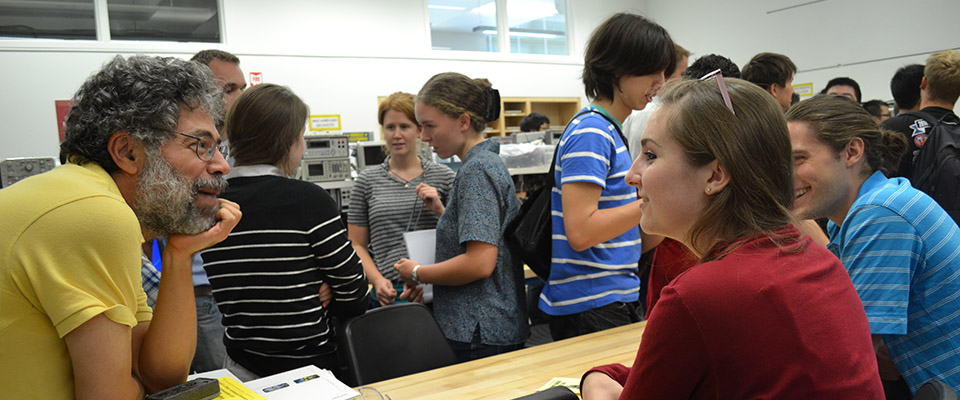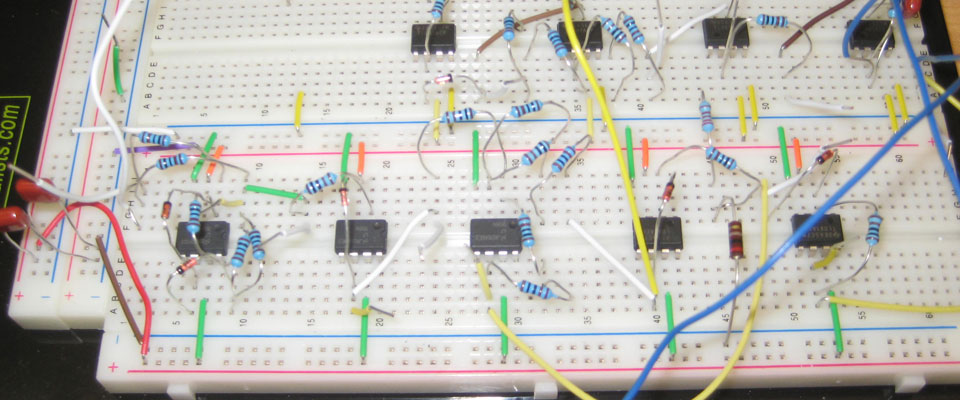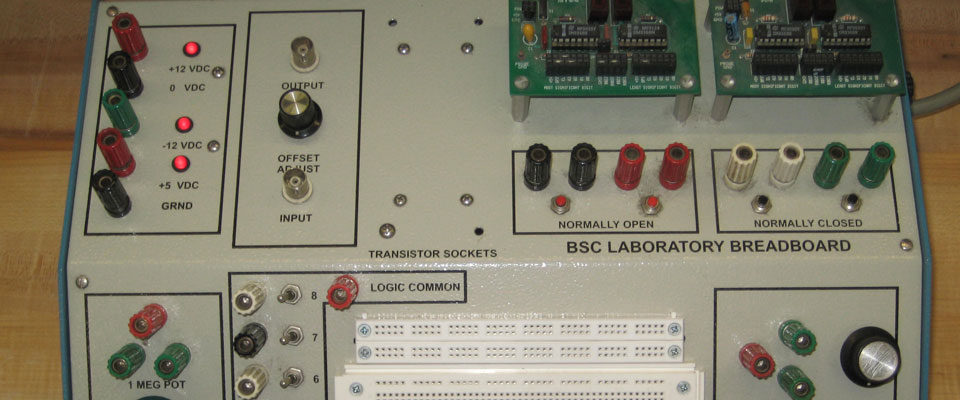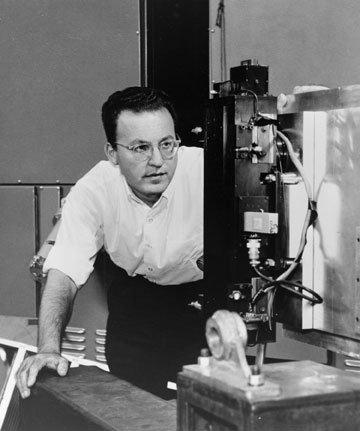Welcome to the Donald A. Glaser Advanced Instrumentation Laboratory
THIS WEBSITE IS NOT IN USE FALL 2020 AND SPRING 2021. PLEASE SEE bCourses INSTEAD
Main Page for Physics 111A Advanced Instrumentation Lab
111 B - go to Experimentation Lab
111 A - go to Instrumentation Lab
Professor Donald A. Glaser was a master of experimental sciences throughout his career. Born in Cleveland and educated at Case Institute of Technology, he earned a doctorate at Caltech and taught at the University of Michigan before accepting a post at UC Berkeley in 1959. Early in his career, Dr. Glaser experimented with ways to make the workings of sub-atomic particles visible. For this research and his subsequent invention of the bubble chamber, he was awarded the Nobel Prize in 1960. He then began exploring the new field of molecular biology, improving techniques for working with bacterial phages, bacteria, and mammalian cells. By designing equipment to automate his experiments and scale them up, he could now run thousands of experiments simultaneously, generating enough data to move the science forward. Recognizing the implications for medicine, Dr. Glaser and two friends created the pioneering biotech company Cetus Corporation in 1971, thus launching the genetic engineering industry.
Later in his career Dr. Glaser continued his experimental research, developing mathematical models for understanding fundamental processes of human vision. Throughout his life he balanced scientific work with an equally passionate interest in classical music, playing viola in chamber music ensembles wherever he went. Avidly curious, innovative, and devoted to the advancement of scientific knowledge, Dr. Glaser was a much sought-after consultant and advisor before his death in 2013.
Physics 111A instrumentation laboratory is an intensive 4-unit laboratory course for 3rd- and 4th-year physics students at the University of California at Berkeley. It is the first section of Physics 111 Lab and preceeds the Physics 111B Experimentation Laboratory in the Advanced Lab of Physics 111 in which a student will undertake four experiments, each taking 2-4 weeks to perform. The students select these experiments from 19 or so experiments permanently set up in the Advanced 111-Lab. They represent a wide range of topics and techniques used in experimental physics. Many of the experiments replicate Nobel prize-winning studies and all are designed to develop skills essential to research.
All Students come to the Introduction lecture first day of class
in room 282 LeConte Hall at 1:00 PM.
What to do First Before coming to the Physics 111A- Laboratory
Note: Use Chrome or Firefox browsers for best content results.
- Read the Syllabus on bCourses before coming to Lab (this is replacing the Instrumentation Lab Syllabus containing previous assignment due dates). Take the Background survey (formerly here: Background Survey ) also on bCourses.
- Talk with students you know that might be taking the class and try and find a lab partner.
- Fill out the Signature Card located on bCourses home page. (Note: Log out of gmail 1st, before accessing the Signature Card)
- Note: Each student must have your picture available in the University of California at Berkeley's bCourses site.
If NOT you must then turn in a PASSPORT PHOTO (not your passport but an actual passport photo) on the first day of Lab for security purposes. - Read the first lab assignment Lab 1 and complete the Pre-Lab questions before coming to Lab.
- Reference material: References can be found on the Physics Library Site. Also on the 111-Lab computers under network drive\111Lab\BSC Share
- Attention: There is NO eating or drinking in the 111-Lab, by order of the University of California, anywhere except in rooms 282 and 286 LeConte on the benches with the BLUE strip around it.
- NOTE: When you login to the 111-Lab computers, if you can NOT login them, then do the following 1st;
Go to Calnet Active Directory and Synchronize your Calnet name. - Donate to the Donald A Glaser Advanced Laboratory.
- Thank you from the Staff.
The Instrumentation Lab (previously Basic Semiconductors Circuits Laboratory) is the first semester of the Physics Departments' advanced laboratory class, Physics 111, required for all physics majors. The class consists of approximately 12 labs, and ends with a design project of your own choice. The labs progress from basic instrumentation to frequency dependent components, transistors, op amps, and ends with LabView Programming. Each lab takes approximately two and a half afternoons to complete; one lab is due each week. We are teaching LabView and learning how to control experiments with the use of this software program and computers. This is applied Physics in action. We appreciate the donations received from donors, National Instruments, and a grant from NSF.
Each weeks laboratories exercises are outlined in the laboratory manual.
Several of the laboratories involve simulating circuits with Spice (using the Multisim program). The required simulation files for these exercises are located on the Physics 111-Lab Server only available from within the 111-Lab.
Donate to the Donald A. Glaser Advanced Lab Improvement Fund
How to Donate
The Laboratory Staff:
-
Laboratory Manager & Research Engineer 3: Winthrop Williams (510) 685-1164
-
Email: winthrop@berkeley.edu







